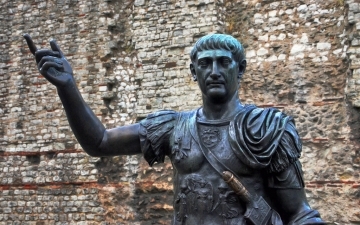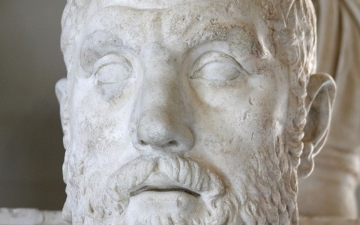Privacy Policy
This Privacy Policy outlines how RomanEmperors.com collects, uses, maintains, and protects your personal information when you visit our website. We are committed to safeguarding your privacy and ensuring that your data is handled responsibly. By using our website, you consent to the practices described in this policy.
1. Information We Collect:
- Personal Information: We may collect personal information such as your name and email address when you voluntarily provide it, for example, when subscribing to our newsletter or contacting us.
- Non-Personal Information: We may also collect non-personal information, including browser type, operating system, and IP address, to enhance user experience and improve our website.
2. How We Use Your Information:
We use the information collected for the following purposes:
- To personalize your experience on our website.
- To send periodic emails with updates, news, and related information.
- To respond to your inquiries and provide customer support.
3. Data Protection:
We implement industry-standard security measures to protect your personal information from unauthorized access, alteration, disclosure, or destruction.
4. Third-Party Websites:
Our website may contain links to third-party websites. We are not responsible for the privacy practices or content of these external sites. Please review their respective privacy policies.
5. Cookies:
RomanEmperors.com may use cookies to enhance your browsing experience. You can choose to disable cookies through your browser settings, although this may affect some website features.
6. Children's Privacy:
Our website is not directed at children under the age of 13. We do not knowingly collect personal information from children. If you believe a child has provided us with their personal information, please contact us, and we will take appropriate action to delete such information.
7. Changes to this Privacy Policy:
RomanEmperors.com reserves the right to update or modify this Privacy Policy at any time. Any changes will be posted on this page, and the date of the last update will be revised accordingly.
8. Contact Us:
If you have any questions or concerns about our Privacy Policy, please contact us at info@bible-history.com
By using RomanEmperors.com, you agree to the terms outlined in this Privacy Policy. Your continued use of our website signifies your acceptance of these terms. Thank you for entrusting us with your privacy, and we are committed to maintaining the confidentiality and security of your information.
Related Posts
From Scrolls to Stones: How Museums Document Biblical History
The Bible is more than just a collection of sacred texts—it’s a living document that has shaped centuries of religious, cultural, and historical movements. For thousands of years, it has been passed down through oral traditions, written manuscripts, and monumental inscriptions. The story of how these texts came to be,...
Read MoreTrajan: Expanding the Roman Empire to Its Zenith
The Roman Empire, at its zenith, was a sprawling realm that stretched from Britannia in the north to Egypt in the south, and from Hispania in the west to Mesopotamia in the east. Among the emperors who played a pivotal role in this expansion and solidified Rome's dominance was Trajan....
Read MoreRamoth-Gilead: The Ancient Stronghold of Israel
Ramoth-Gilead, an ancient city of great biblical and historical significance, was a major stronghold located in the region of Gilead, east of the Jordan River. The city, often mentioned in the Old Testament, played a crucial role in the territorial struggles between Israel and its neighboring nations. Today, the exact...
Read MoreCreating a Welcoming Worship Space: Tips for Choosing Inclusive Church Chairs
An inviting and inclusive church environment is paramount for fostering a strong sense of community and belonging. While theological beliefs and welcoming greetings are essential, the physical space itself also plays a significant role. One often-overlooked element that can significantly impact inclusivity is your church seating. This post dives...
Read MoreMacrinus: The First Equestrian Emperor and His Brief Attempt to Stabilize Rome
Opilius Macrinus, an unexpected figure in the annals of Roman history, ascended to the imperial throne in 217 AD after the assassination of Caracalla. Unlike his predecessors, who hailed from the senatorial aristocracy, Macrinus was an eques, a member of the equestrian order, a social class traditionally associated with business...
Read MoreDomitian: The Last of the Flavian Emperors and His Reign of Terror
In the annals of Roman history, the reign of Domitian, the youngest son of Vespasian and the last of the Flavian emperors, is often remembered as a time of tyranny, repression, and political intrigue. Domitian's rule, which lasted from 81 to 96 CE, stands in stark contrast to the relative...
Read More






















